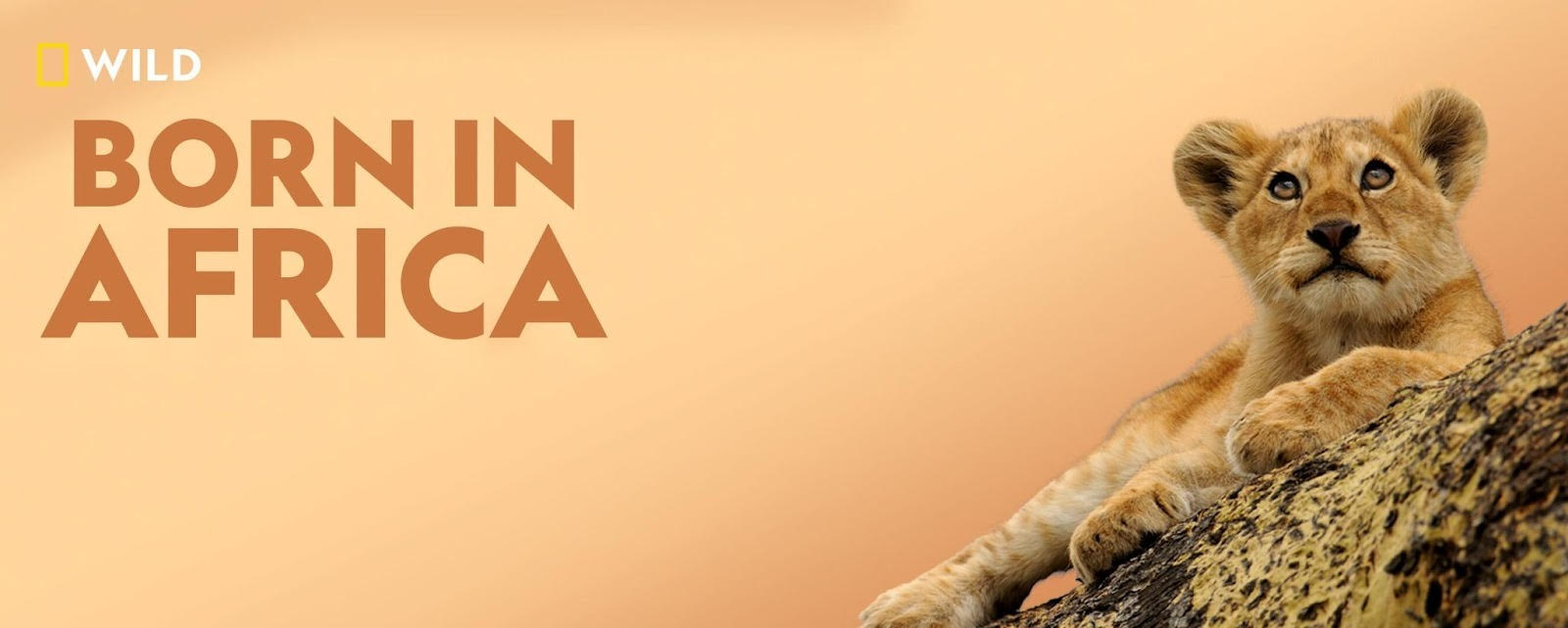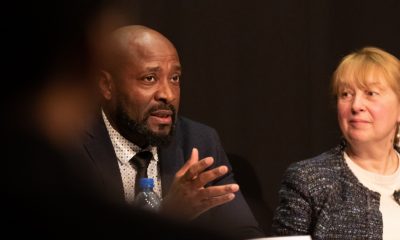Showbiz
Giving My Life To Christ Changed My Life—Folorunsho Alakija

By Dipo Olowookere
Many know Mrs Folorunsho Alakija as one of the richest persons in Africa, who boasts of an oil block in Nigeria, but not many know the true story behind her riches.
Mrs Alakija told Peace Hyde of Forbes Africa in an interview that she is where she is today because of her decision to give her life to Jesus Christ about 25 years ago.
Hear her: “I don’t think I could have got this far if I had not entered into a covenant with God. It was 25 years since I gave my life to Christ. I entered into an agreement that if he would bless me I would serve him all the days of my life.”
As CNBC reports it, Mrs Alakija thereafter founded the Rose of Sharon Glorious Ministry International in Lagos, where people meet every Tuesday for fellowship and prayer. They are dedicated to a common purpose, to serve God.
The ministry is one of many ways Mrs Alakija is keeping her promise to God. Another is through her work with the Rose of Sharon Foundation, a not-for-profit providing care, financial support and scholarships for widows and orphans. In return, God has kept his side of the bargain.
Mrs Alakija is worth a staggering $1.73 billion according to Forbes, making her the fourth richest person in Nigeria and second richest woman in Africa behind Isabel dos Santos. She is the Vice Chair of Nigerian oil exploration company, Famfa Oil, which shares a joint partnership agreement with international giants Chevron and Petrobras.
With a 60 per cent stake of block OML 127 of the Agbami field, one of Nigeria’s largest deepwater discoveries, Famfa Oil produces approximately 250,000 barrels of crude per day, according to Mrs Alakija.
Having just turned 65 in July, Mrs Alakija has a lot to be thankful for. She is blessed with a dedicated husband, four sons and grandchildren.
Mrs Alakija’s feet are firmly on the ground but her journey to becoming one of Forbes’ 100 most powerful women in the world began with an encounter 36,000 feet above sea level.
“I met a friend of mine on a flight on my way to England and she asked me if I could help her partners to be able to lift crude oil from Nigeria. So I called around and set up an appointment with the petroleum minister but he discouraged me. He said are these people willing to invest in Nigeria because the government did not want to encourage more foreigners to come and lift its crude. I asked my friend who said they didn’t want to invest in Nigeria and that was the end of that,” says Mrs Alakija.
With that, the new oil opportunity came to an end. But her dogged determination transformed this negative conclusion into one of the most renowned success stories to come from Africa. This tenacity began at an early age.
“I come from a Muslim background and it was a polygamous lifestyle. My father had eight wives and 52 children. All the wives had to cooperate with each other. To them that was how life was, they cooperated with one another, they quarrelled and made up again, most of us were living under one roof in private bedrooms, I think about four floors of a building, in the heart of Lagos Island,” says Mrs Alakija.
Born into a family of traders, Mrs Alakija cut her teeth in the textiles trade while still a child.
“My siblings and I used to help my mum in the store and that is where we learned a lot about textiles, textures, colours, patterns and merchandising. That is where I learned all the practical steps that I later on applied to my fashion business.”
The fashion business came after her stint in the corporate banking world. After qualifying as a secretary in Britain, a place where she also went to school from the age of seven to 11, Mrs Alakija worked as an executive secretary with the bank, Sijuade Enterprises, in Lagos for a year and a half before joining the International Merchant Bank of Nigeria.
“I joined them as a secretary and I was there for about 12 years. I was promoted to other departments of the bank, including heading the corporate affairs department. From there I moved into proper banking, working in the treasury department. I loved it because I was trading with the bank’s money to make money for the bank.
“Later on, the bank was expanding and they started putting extra cogs between the wheels to ensure that people did not get promoted too fast to get to top positions within the bank. So I asked myself, ‘how long will it take me to get from a treasury officer to a general manager?’” says Mrs Alakija.
She quit her job and decided to study fashion design. She enrolled in the American College in London as well as the Central School of Fashion where she obtained a distinction. Immediately after that, Supreme Stitches was born and Mrs Alakija became renowned for her haute couture range, which was worn by women around the world.
Mrs Alakija says divine intervention persuaded her to rename her fashion business.
“I rebranded to Rose of Sharon House of Fashion because God gave me a revelation that I needed to change the name. It was a revelation initially given through a pastor but I decided I was not going to change it until I heard from God myself. I had a dream a year after the prophecy was given and I saw the new name on the body of my van in the dream and I changed it overnight,” says Mrs Alakija.
Then came her foray into printing. Mrs Alakija established the Rose of Sharon Prints and Promotions, as well as Digital Reality Prints.
“I wanted a new challenge; I was getting bored of the fashion business… the [printing] business did well for the first couple of years before it got into trouble,” she says.
The Lagos State government clamped down on the printing business because billboards were clogging up the skyline. Sales for her fledgling business plummeted.
“At some point when I went abroad, I saw some printing machines and realised that those were the similar kind of machines I had been shown in [a] dream but those were for offset. I went into the wrong type of printing out of disobedience and ignorance.
“I misunderstood and I was excited with the large format machines so I didn’t do too much homework into trying to find out more about the pictures that I saw in my dream. So I eventually got into the offset printing five years ago. And it’s been a success. We started out with 30 people and now we have about 100 employees,” says Mrs Alakija.
There was a smooth transition from the fashion business into mass-produced t-shirts. Demand for monograms, screen-printing and picture transfers on t-shirts increased. The company set up four departments, including a souvenirs department where they imported souvenirs and gift items from China. Ever the entrepreneur, Mrs Alakija was still on the lookout for the next big thing.
Mrs Alakija’s encounter with her friend on the flight to England was fortuitous. After her friend decided not to invest in the Nigerian oil industry, Mrs Alakija decided to make use of her new contact, Maryam Babaginda. Maryam was the wife of Ibrahim Babaginda, the former president of Nigeria under military rule. As a customer of Supreme Stitches, Maryam was able to secure another appointment for Mrs Alakija with the petroleum minister, Jubril Aminu.
“I went back and told the petroleum minister that I would like to render other services, like catering for the oil industry. He said there were already so many caterers on board, various ships on the high seas, and as a result, there were no opportunities available.”
Although disappointed, Mrs Alakija did not give up. She decided to do some more homework. After consultations with a close relative who worked for the Nigerian National Petroleum Corporation (NNPC), she was advised to offer transportation services for the petroleum industry. It took a long time to get another meeting with Mr Aminu.
“I finally got another opportunity and I wrote an official letter saying I would like to offer transportation services to the oil sector. The minister’s feedback was he didn’t think it was a good idea because the government would soon be doing away with the trucks that were being used to transport crude oil and replace them with a lot more pipelines instead. So I said ‘what am I going to ask for now?’”
“He said ‘why don’t you think of exploration?’. He said the government wants to put the resources of its land in the hands of its nationals, because it feels that it is about time that Nigerians begin to exploit its own resources rather than let multinationals continue to take away our wealth. I had given up at this point. I thought he was being sarcastic and he didn’t want to help all along,” she says.
Mrs Alakija cried all night. It felt as if a major door had been closed. After seeking consolation from her husband, Mrs Alakija went on to inform Maryam of the outcome of the meeting.
“I told her that it was bad news and that the petroleum minister wants to give me a heart attack. I went back to do a lot more homework and consulted with a friend of my husband who was already in the oil business. At the end of the research, I decided to not give up and officially apply for an opportunity to get an oil block,” says Mrs Alakija.
Before submitting her letter, Mrs Alakija had already found her technical partners and it was now a waiting game. To her surprise, the oil minister was replaced and Mrs Alakija had to restart the whole process again. She kept pushing. Everything seemed to be going according to plan when the second oil minister was also replaced.
“At this stage, I still wasn’t ready to give up. The third minister finally wrote me a letter to tell me my application was receiving attention after two years. I got the letter and I cried my eyes out in frustration again at the snail’s pace progress the application was making,” says Mrs Alakija.
Swaying from one military coup to another, the Nigerian political climate was volatile during the 1990s. While on holiday in the Philippines, news broke about yet another change in the Nigerian regime. Mrs Alakija’s oil application was still being reviewed.
“I raced back to Nigeria to find that the current administration had already done the oil block allocations before they left power and my licence was waiting for me. It took three years of not taking no for an answer and going back each time the door was shut in my face,” says Mrs Alakija.
She finally had her oil block, but the battle was far from over.
“When I was making the application I listed several blocks. I didn’t want to take a chance on someone else taking my block. So I applied for several blocks and the one I was allocated was the one nobody wanted because it was deep offshore and nobody was exploring deep offshore because it was too expensive to explore and there was no technology around to explore that initial depth of 5,000 feet at that time,” says Mrs Alakija.
At first, it seemed Mrs Alakija had drawn the short straw. She did not have the technology, expertise and money to start the process of exploration. Mrs Alakija, with support from her husband, had to use their life savings to secure the license or face losing it after the government threatened to terminate the agreement if full payment was not made. It took Mrs Alakija an additional three years to find new partners after her initial partners pulled out. After years of knocking on countless doors, their persistence paid off.
“Texaco was already in Nigeria and looking to expand their business. They went to the Department of Petroleum Resources (DPR), who told them that Famfa Oil was looking for technical partners. So they linked us up. The license we had was not worth more than the paper it was written on until they came in,” says Mrs Alakija.
Five years later, Chevron bought Texaco, including the partnership with Famfa Oil.
After receiving a signature bonus, out of which Mrs Alakija was able to pay the balance of the license to the government, Mrs Alakija started working with her new partners.
Chevron set up an office four months after signing the partnership contract, with Mrs Alakija holding on to 60% of the shareholding of the oil block and Chevron taking 40%. Chevron later sold an 8% stake to Petrobras in exchange for their deep offshore technical expertise.
“You can find oil, but if what you have spent is more than the quantity of oil available within the block to make your money back in multiples, then it was not worth carrying on and you cut your losses.
“You could even have a dry hole after spending millions to explore. So when we found oil in commercial quantities, they said they had to announce it to their shareholders and it has been a battle ever since.”
The announcement of the major find in Mrs Alakija’s oil block by Chevron attracted the attention of the Nigerian government who had initially assumed that the oil block was one of the worst due to its location.
The government snatched an initial 40% stake from Mrs Alakija, followed by another 10% stake, leaving her with a meagre 10% stake.
“We felt like it was unfair. We had taken the sole risk and invested everything we had in the business. It had become a family business. We spent six years as a family to ensure this worked out and now that it was bearing fruit, they just stepped in and took away everything we had struggled and worked extremely hard for. I said to myself, ‘Folorunsho Alakija does not give up, my husband does not give up and my children do not give up.’”
Most of her advisers believed it would be impossible to win a legal battle against the government, which, at the time, was notorious for its corruption. Mrs Alakija ignored their advice and took the government to court. For her, the case was simple, Nigeria has a constitution and nobody, including the government, is above that constitution. After 12 years of intense legal battle, the courts returned the 60% shareholding back to the family.
“It was bittersweet. There were a lot of sleepless nights and battles. Suddenly we became the plague, friends stopped picking up our calls and people were asking why we could not be content with 10 per cent. My husband was a rock, to myself and the family, during that time and I could not have done it without him,” says Mrs Alakija.
Dolapo Oni, Head of Energy Research at Ecobank, praises Alakija’s courage.
“Mrs Alakija has run a very successful business in Famfa Oil. She was one of the first women in the oil business and her battle with the federal government shows a great deal of tenacity. After they took away her block, she successfully won it back. She was also one of the first women to partner with a joint venture partner, Chevron, which has been very successful,” he says.
Oni, however, feels the oil company needs to branch out.
“I think they are risk averse. Having been as successful as they are, they do not want to explore other opportunities. I personally feel like you have to increase your reserve base, you have to explore other assets and Famfa has traditionally not diversified their holdings in other fields, which I believe could be very profitable for the business as well.”
For now, Mrs Alakija seems content. She met her husband, Mr Modupe, a year after she returned to Nigeria from England and they have been married for over 40 years. These days, Mrs Alakija spends her time as a proud grandmother and an author, having penned several books, including her autobiography “Growing With The Hand That Gives The Rose”, “The University of Marriage” and “The Cry of Widows and Orphans”.
As Mrs Alakija stands amid the melodic songs of praise in her Tuesday fellowship, she is at peace. Interfere with her business, however, and it is war.
www.cnbcafrica.com/news/western-africa/2016/09/17/africas-second-richest-woman/
Showbiz
Netflix Walks Away from Warner Bros Deal After Paramount’s Huge Offer

By Adedapo Adesanya
Streaming giant, Netflix, has backed away from its proposal to buy Warner Bros Discovery, clearing the way for Paramount Skydance to win the long battle for one of Hollywood’s most storied studios in a deal worth over $100 billion.
Warner Bros, which announced it was up for sale last year, said Paramount’s latest bid was “superior” to the one from Netflix, which in turn refused to raise its offer.
Paramount, which has been insistent regarding the deal, would also need approval from the US Department of Justice as well as European regulators.
Netflix executives say they have declined to match Paramount’s bid as “the deal is no longer financially attractive” at that price.
The buyer would gain control of the iconic studio along with its films and media networks.
The takeover has been touted to significantly reshape the global media landscape, which includes the streaming market.
Last December, Warner Bros agreed to a takeover offer from Netflix for some of its assets, in a deal worth roughly $82 billion, including debt.
Paramount then made a rival proposal, which was refused by Warner Bros, but an increased offer was made earlier this week, boosted by $1 per share.
“The transaction we negotiated would have created shareholder value with a clear path to regulatory approval,” Netflix co-chief executives Ted Sarandos and Greg Peters said in a statement. “However, we’ve always been disciplined.”
“This transaction was always a ‘nice to have’ at the right price, not a ‘must have’ at any price,” the Netflix executives added.
The announcement came just hours after Mr Sarandos had visited the White House on Thursday.
The development marks the possible end of the saga that saw offers and refusals and could possibly change the global streaming market as Paramount is backed by some of the biggest names in the industry, including Oracle owner, Mr Larry Ellison.
Showbiz
Why Wildlife Shows Hook Us: The Allure of NatGeo Wild

There is something undeniably captivating about wildlife documentaries. The moment a predator locks eyes with its prey, the awe of seeing animals in their natural habitat, the thrill of nature’s drama playing out in real time. These are experiences that rein us in and refuse to let go. NatGeo Wild doesn’t just show the wild; it invites us to feel it, understand it, and marvel at it.
What is it about the wild that keeps pulling us back, no matter how many times we watch?
The Explorer in All of Us
At our core, we are wired much like the animals we watch. Curiosity drives us the way it drives a leopard to investigate a sound in the distance. Wildlife shows activate that instinct. We scan scenes like hawks from above, reading body language, anticipating danger, noticing subtle shifts in behaviour. In these moments, we’re more than viewers; we’re explorers, investigators, and sometimes even adventurers.
It’s a way to witness danger safely. A way to test our instincts and a way to connect with the power and beauty of the natural world, all from the comfort of home.
The Comfort of Nature’s Stories
Nature may be ruthless, but it is rarely random. Like a herd moving in rhythm or a pack operating with purpose, wildlife shows follow a structure we instinctively understand: predator and prey, threat and escape, loss and resilience.
Within a single episode, chaos settles into balance. Even in harsh environments, there is order just as there is in the wild. That predictability offers comfort, reminding us that survival follows rules, patterns, and rhythms older than humanity itself.
NatGeo Wild Shows That Keep Us Glued to the Screen
Over the years, NatGeo Wild has mastered the art of storytelling that moves like nature itself, quiet when it needs to be, explosive when it matters most. These are not just documentaries; they are immersive experiences that sharpen the senses and stir instinct.
Africa’s Deadliest
Step into the African wilderness, where survival is a daily contest of speed, strength, and strategy. Africa’s Deadliest introduces us to predators that hunt with the patience of chess players and the precision of seasoned warriors. From crocodiles lying in wait beneath murky waters to lions coordinating attacks across the savannah, each episode breaks down how instinct, timing, and dominance decide who eats and who doesn’t.
Wild, Smart and Deadly
Wild, Smart and Deadly is where brains meet brawn in the animal kingdom. This series delves into the intelligence behind nature’s deadliest hunters, showcasing creatures that use strategy, cunning, and sheer wit to survive. From octopuses escaping predators with mind-blowing tricks, to predators setting up elaborate ambushes, every episode reveals how survival in the wild is a high-stakes chess game. Watching it feels like witnessing nature’s most elite tacticians at work, where one smart move can mean the difference between life and death.
Born in Africa
In the wild, birth is only the beginning. Born in Africa follows young animals from their first breath into a world that offers no mercy. Every stumble, chase, and lesson learned is part of a race against time. From a giraffe learning to stand within minutes to lion cubs discovering the rules of dominance, the series captures vulnerability, growth, and resilience in its purest form.
Wild Mediterranean
The Mediterranean may look serene, but beneath its surface lies a battlefield of survival. Wild Mediterranean uncovers a world where predators hunt in crystal waters and creatures adapt to shifting coastlines and hidden dangers. From dramatic underwater pursuits to life along rugged shores, the series reveals a region shaped by adaptation, resilience, and quiet ferocity.
Hostile Planet
Here, nature shows no mercy. Hostile Planet explores environments so extreme they feel uninhabitable, yet life persists. Animals endure freezing tundras, scorching deserts, and violent storms, adapting in ways that defy belief. Every episode is a testament to resilience, revealing how instinct, evolution, and sheer willpower allow life to survive against impossible odds.
These shows captivate because they do more than entertain; they educate, inspire, and transport us into worlds we’d rarely get to see otherwise. Every episode is an invitation to explore, learn, and marvel at the wonders of nature.
Catch all these incredible wildlife stories on NatGeo Wild, GOtv Channel 100.
Subscribers can also enjoy more value with the We Got You offer, available until 28th February 2026. Pay for your current package and automatically get upgraded to the next one at no extra cost, giving access to more channels, more shows, and more moments like these.
To subscribe, upgrade, or reconnect, download the MyGOtv App or dial *288#. You can also stream anytime with the GOtv Stream App.
Showbiz
TikTok’s 2026 The Discover List Features Five African Creators

By Modupe Gbadeyanka
Five creators from Sub-Saharan Africa have been featured in TikTok’s annual global The Discover List 2026, marking a standout moment for the region’s growing influence in the global creator economy.
They were among the 50 most influential creators shaping culture worldwide across five categories: Icons, Innovators, Foodies, Educators, and Originators.
From medical education in Lagos to culinary innovation in Nairobi and Cape Town, and from dynamic design studios in Johannesburg, African creators are not just being seen on the world stage — they are commanding it.
The Discover List 2026 reaffirms that TikTok is not only where trends begin, but where real opportunities take shape and creators turn influence into lasting impact.
The five TikTok creators from Africa featured were Tamia Nontsikelelo from South Africa, Cherie Kihato of Savannah Space from Kenya, Wayne Chang from South Africa, Olawale Ogunlana of HealthKraft Africa from Nigeria, and Trevor Were from Kenya.
Ogunlana breaks down complex medical conditions into clear, engaging videos, turning digital platforms into powerful tools for better health across the continent. He is also one of TikTok’s Sub-Saharan Wellbeing Ambassadors.
As for Chang, he is celebrated for his vibrant culinary content that blends diverse Asian cuisines with locally sourced South African ingredients, while self-taught chef Were transforms simple, everyday meals into exciting and accessible creations. He shares approachable recipes and cooking inspiration from his home kitchen.
Also, Kihato, a creative entrepreneur, showcases heritage through furniture, art and interiors. Through content creation, she has expanded her business beyond Kenya, inspiring a global audience of design lovers and aspiring creatives, while Nontsikelelo fuses storytelling and marketing on TikTok to build powerful, engaged communities around her modest fashion brand.
Commenting on the latest development, the Global Head of Content Operations for TikTok, Mr James Stafford, said, “At TikTok, we are committed to celebrating our inspiring creator community. Today, we are thrilled to unveil The Discover List 2026 — a highlight of 50 creators to watch from around the world.
“From the Educators who are inspiring their communities to learn something new, to the Originators who share their businesses with global audiences on TikTok, we are proud to be a space where new talent can be discovered, and authenticity and creativity can thrive.”
Business Post recalls that in 2025, Sub-Saharan African creators featured on the Discover List for the very first time, a milestone that unlocked unprecedented global visibility.
Those creators were spotlighted in international publications, including TIME Magazine and participated in major global moments such as Cannes Lions International Festival of Creativity.
At Cannes Lions, Chef Abby (Abena Amoakoaa Sintim-Aboagye) from Ghana engaged directly with TikTok CEO Shou Zi Chew and the Mayor of London, further amplifying her global presence. Building on this momentum, she was also nominated at the 2025 TikTok Awards in Sub-Saharan Africa, where she emerged as First Runner-Up in the Food Creator of the Year category.
-

 Feature/OPED6 years ago
Feature/OPED6 years agoDavos was Different this year
-
Travel/Tourism10 years ago
Lagos Seals Western Lodge Hotel In Ikorodu
-

 Showbiz3 years ago
Showbiz3 years agoEstranged Lover Releases Videos of Empress Njamah Bathing
-

 Banking8 years ago
Banking8 years agoSort Codes of GTBank Branches in Nigeria
-

 Economy3 years ago
Economy3 years agoSubsidy Removal: CNG at N130 Per Litre Cheaper Than Petrol—IPMAN
-

 Banking3 years ago
Banking3 years agoSort Codes of UBA Branches in Nigeria
-

 Banking3 years ago
Banking3 years agoFirst Bank Announces Planned Downtime
-

 Sports3 years ago
Sports3 years agoHighest Paid Nigerian Footballer – How Much Do Nigerian Footballers Earn





















